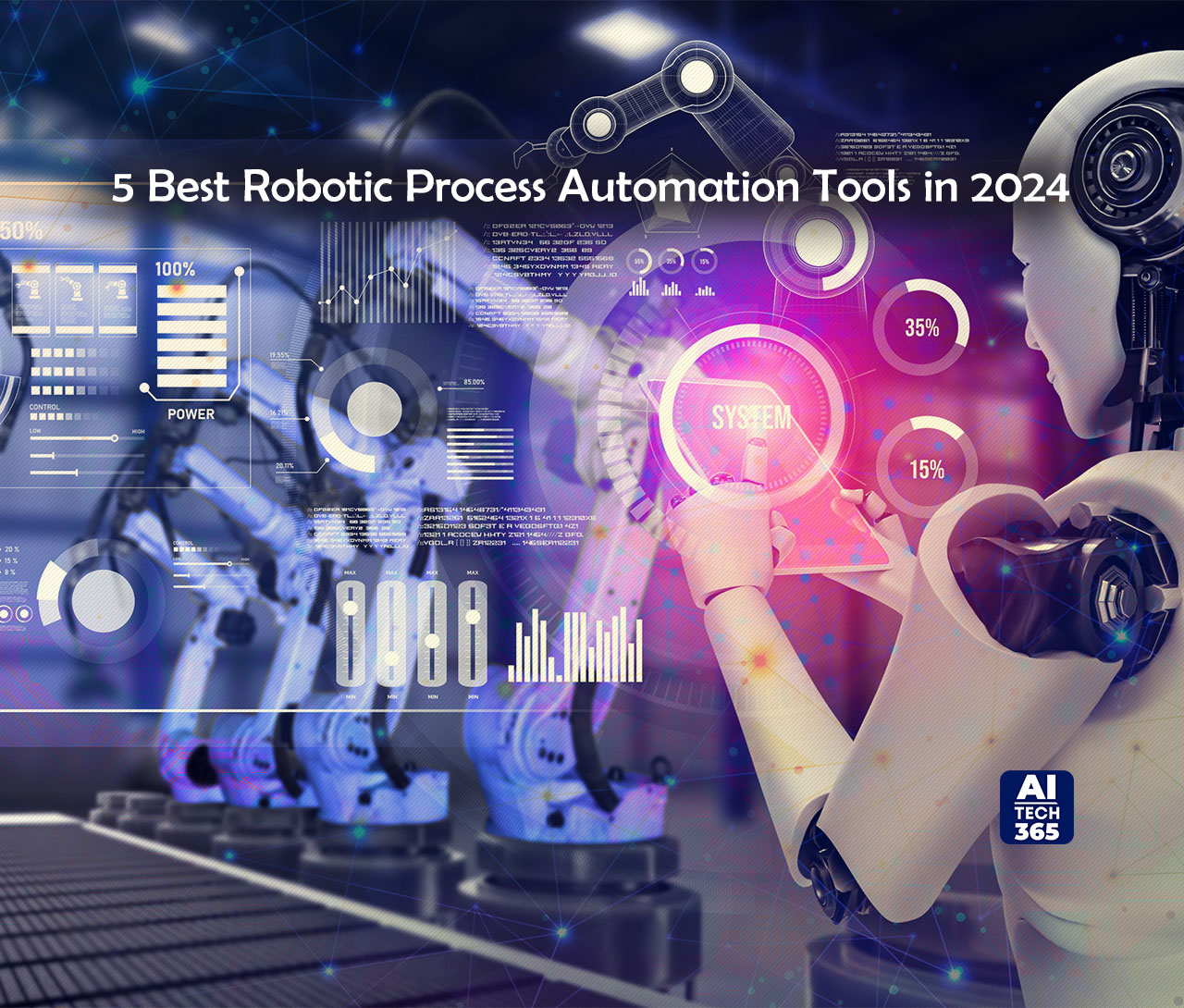Tired of spending countless hours on repetitive, mundane tasks that drain your productivity and creativity? Robotic process automation (RPA) tools offer a game-changing solution to this problem.
By harnessing the power of automation, these tools can handle routine, rule-based processes, freeing you up to focus on more strategic and value-added work. It’s like having a trusted assistant to take care of the monotonous tasks, allowing you to unleash your full potential in the workplace. Without further ado, let’s learn more about RPA tools.
What are RPA Tools?
Robotic process automation (RPA) involves leveraging technology and structured inputs to automate business processes based on business logic. With RPA tools, companies can configure software, often referred to as “robots,” to interpret applications, process transactions, manipulate data, trigger responses, and communicate with other digital systems.
In many organizations, RPA serves as a means to modernize existing software without the need for complete replacement. While the current business applications may function effectively, they often require users to perform repetitive tasks throughout the day. Robotic process automation tools aim to eliminate this tedium by automating such repetitive tasks, thus enhancing operational efficiency without necessitating a complete overhaul of the core application.
Benefits of RPA Tools
Integrating AI algorithms into legacy applications becomes remarkably straightforward with RPA. Many RPA platforms offer advanced tools like computer vision and machine learning, which breathe new life into older code. For instance, optical character recognition can extract critical information from document images, such as purchase orders, and seamlessly integrate them into accounting software—an invaluable asset for document-intensive industries like insurance or banking.
However, the real game-changer lies in how RPA tools are programmed or trained. Through a process known as “process discovery,” these platforms’ robots observe and learn from business users’ actions, akin to creating spreadsheet macros based on user input.
While RPA isn’t entirely hands-off, manual intervention and fine-tuning are essential during training. Occasionally, custom code may be required to address specific scenarios beyond the capabilities of preconfigured bots. Nonetheless, these instances are infrequent, as the bots continuously improve and adapt. AI algorithms play a crucial role in identifying patterns to enhance both performance and streamline operations in the future.
What are the Top RPA Tools?
RPA tools have evolved into integral components of comprehensive enterprise computing ecosystems, orchestrating and managing complex architectures seamlessly. These systems not only handle various APIs and services but also facilitate smooth data flow with additional bots.
Furthermore, robotic process automation tools are extending their reach to cloud management roles. While initially focused on desktop users, there’s now a shift towards backend control functionalities. The distinction between RPA for desktops and database/service maintenance is becoming increasingly blurred.
In today’s RPA marketplace, you’ll find a diverse array of tools. Some are purpose-built newcomers, while others are established tools that have been enhanced with automation features. Some tools originated as business process management (BPM) platforms and have since evolved to incorporate automation capabilities. Certain vendors position their offerings as “workflow automation” or “work process management,” while others emphasize RPA’s advanced AI and machine vision functionalities compared to traditional business process automation.
5 Best Robotic Process Automation Tools in 2024
There are numerous RPA tools out in the market offering innovative features, below are our top five picks.
Fortra
Key Features:
- Fortra offers rapid automation of complex tasks, allowing organizations to streamline their processes efficiently.
- It supports the distribution of tasks to multiple computers, enabling parallel execution of automation processes.
- Fortra provides scriptless automation, making it easier for users to create and manage automated workflows.
Trial Version: Users can take advantage of a 30-day free trial to explore the platform’s capabilities.
Power Automate
Key Features:
- This RPA tool is suitable for small to large enterprises, offering a range of automation capabilities to meet diverse business needs.
- Power Automate provides public cloud deployment, ensuring flexibility and scalability for organizations of varying sizes.
- The platform offers three different plans, allowing users to choose the features that best align with their requirements.
Trial Version: Interested users can access a 90-day free trial to experience the tool’s functionalities.
Kofax
Key Features:
- Kofax is known for its advanced automation capabilities, making it suitable for organizations across different industries, including healthcare and finance.
- The platform offers a 90-day free trial, allowing users to explore its features and assess its suitability for their specific automation needs.
Automation Anywhere
Key Features:
- Automation Anywhere provides advanced automation features, empowering organizations to automate repetitive back-office processes effectively.
- The platform offers a demo upon request, enabling users to gain insight into its capabilities and potential impact on their operations.
UiPath
Key Features:
- UiPath is widely recognized for its ability to automate complicated and end-to-end business processes, catering to organizations with diverse automation requirements.
- The platform facilitates seamless interaction and data exchange between different applications, enhancing overall operational efficiency.
Trial Version: Users can explore UiPath’s capabilities through a 60-day free trial, allowing them to assess its suitability for their automation initiatives.
These RPA tools are designed to automate repetitive tasks, enhance operational efficiency, and reduce operational costs, thereby equipping organizations with the capabilities to thrive in an increasingly automated business landscape.
Final Takeaway
RPA tools have revolutionized the way organizations approach process automation, offering unprecedented efficiency and scalability. By streamlining repetitive tasks and reducing operational costs, these tools empower businesses to focus on strategic initiatives and innovation. As technology continues to advance, robotic process automation tools will undoubtedly play a pivotal role in shaping the future of work, driving productivity, and enhancing overall business performance.


